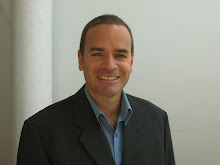Today I received an invitation to a series of workshops / conferences (think big organisation, lots of speakers, big deal) aimed at gospel ministry in Latin America. The organisation was one I hadn't heard of, I won't be going, and I wish them well.
But - the invitation gave an interesting insight into what they, and I suspect many others think of when they say "ministry to latin america".
By definition, Latin America is the Spanish-speaking part of the Americas. It includes the rapidly growing hispanic population in the United States, Mexico, Central America and South America (although because of Portuguese, Brazil is sometimes left out.) Think from the US/ Canada border to almost the south pole. That is a lot of countries and a lot of people.
The interesting thing is, this organisation is holding 4 major events next year to "take the gospel to Latin America" but 3 of those 4 events are in the United States. The 4th is in Mexico City.
It is interesting because it demonstrates a perception (and I have no reason to object to the perception) that the centre of latin america is the United States. The thinking is, if you want to do something to impact the latino world, you do it in the United States - probably somewhere like Miami, Houston or Los Angeles.
This has an interesting implication for ministry and theological education.
It means that the tendency is to look north of the border for resources, training and funding. For example, a common model for US churches to be involved in the "mission work" of training pastors is to try and find a US institution that will offer a scholarship, coach the guy like crazy so his English is good enough, and bring him to seminary in the US away from his home country for 3 or 4 or 5 years.
At the end of that time, he may or may not return. There are plenty of churches in the US who want a well trained and well thought-out Spanish speaking pastor, and they are looking at these scholarship graduates. Remember that this is the guy who has won the scholarship and has got his English going - so he is a good guy! But that creates a brain drain. The best and brightest often get taken away, and may never come back.
There are some that do, but they are the exception.
Its a tricky situation, because training institutions in Latin America that will do a good job of solidly preparing someone for word ministry are not common. A few exist, but they are not common. But a constant sucking away of the next generation of leaders and teachers is perpetuating that problem.
This is why in-country training, whether it be by distance or in a classroom is so important. It teaches people in their own context, it encourages them to serve in their own country once the training is over, and it builds the momentum of education and training in areas where it is needed.
Tuesday, August 26, 2014
Subscribe to:
Post Comments (Atom)

No comments:
Post a Comment